Disruption and Risk Management
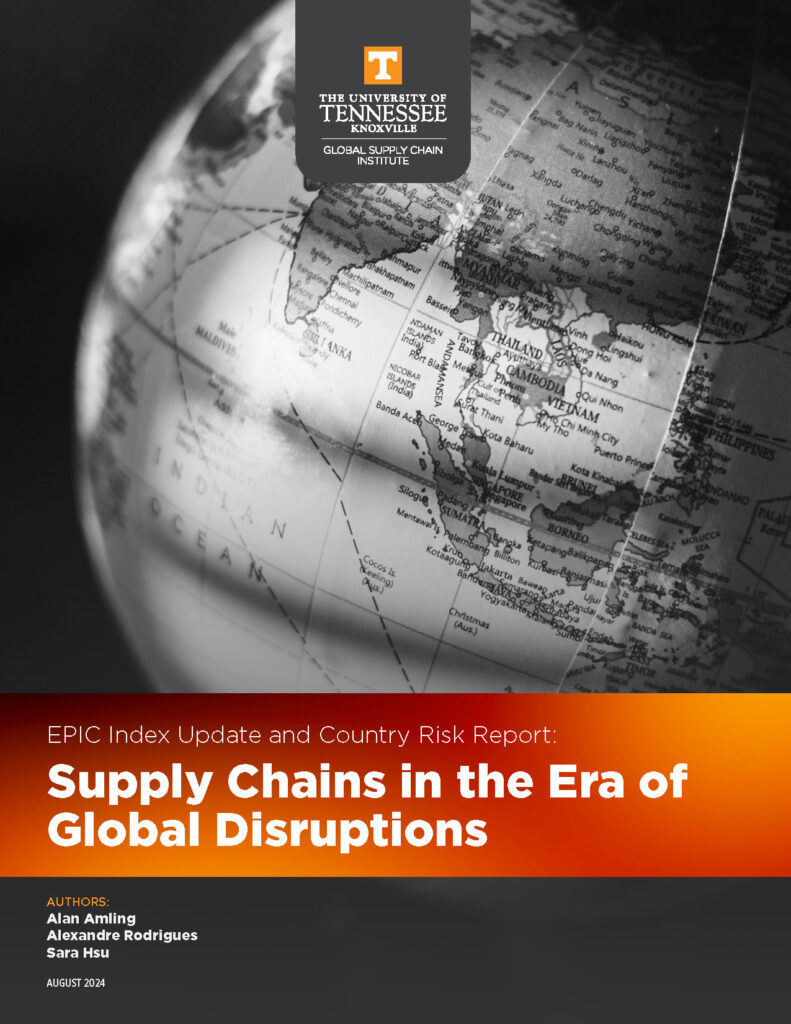
EPIC Index Update and Country Risk Report
Managing Risk in an Era of Global Supply Chain Disruptions
Present-day global supply chains face unprecedented risk. From environmental and climate-driven disruptions to geopolitical and regulatory requirements, today’s supply chain professionals must juggle economic and financial challenges as well as a variety of operational and technological disruptions. COVID-19 only highlighted the critical end-to-end supply chain risk mitigation challenges that supply chain managers have dealt with for decades. This white paper provides critical insights into modern-day global supply chain risks and an update to the EPIC Index originally published in 2014. Read on to see how this framework helps businesses assess supply chain readiness across economic, political, infrastructural, and competence perspectives.
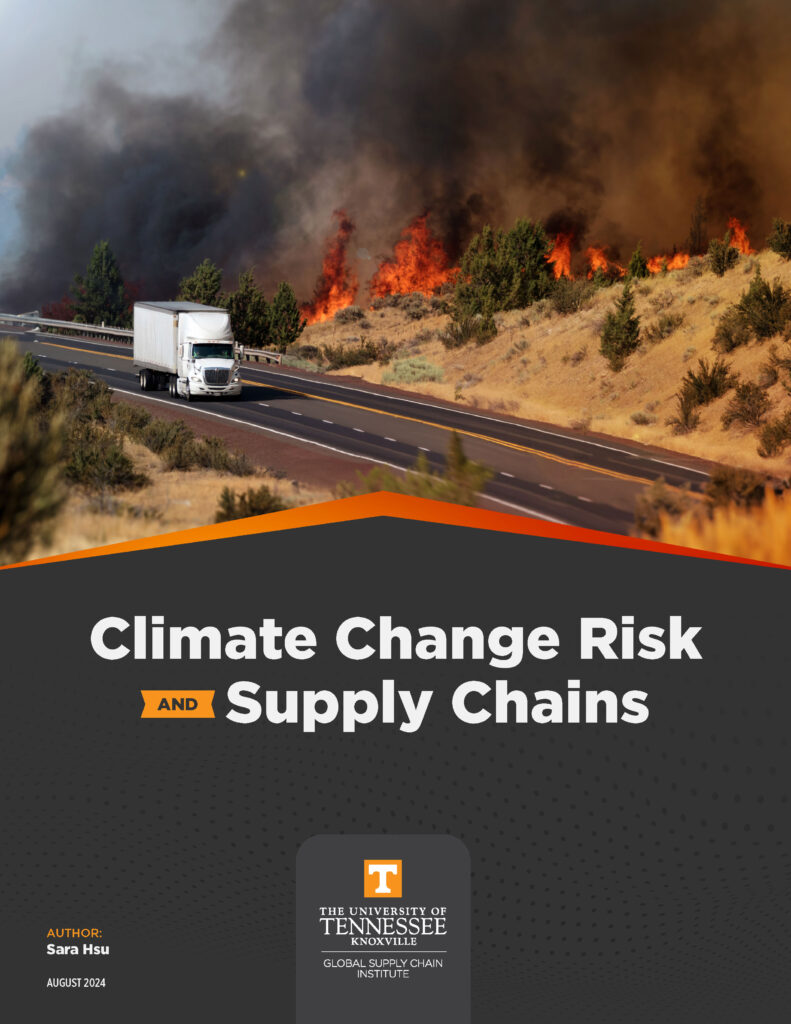
Climate Change Risk and Supply Chains
How to Manage and Mitigate Climate-Related Supply Chain Challenges
With the frequency and intensity of extreme weather events increasing, supply chain managers and leaders face significant challenges. Climate change and recent natural disasters, such as Hurricane Ian, have caused substantial disruptions in operations and logistics, highlighting the vulnerability of supply chains. To address these supply chain challenges, professionals must ensure the resilience of their current supply chain operations globally while adopting smart future-proof strategies. This white paper provides valuable insights into climate change risk mitigation as well as a Climate Change Index to help your team make informed strategic decisions.
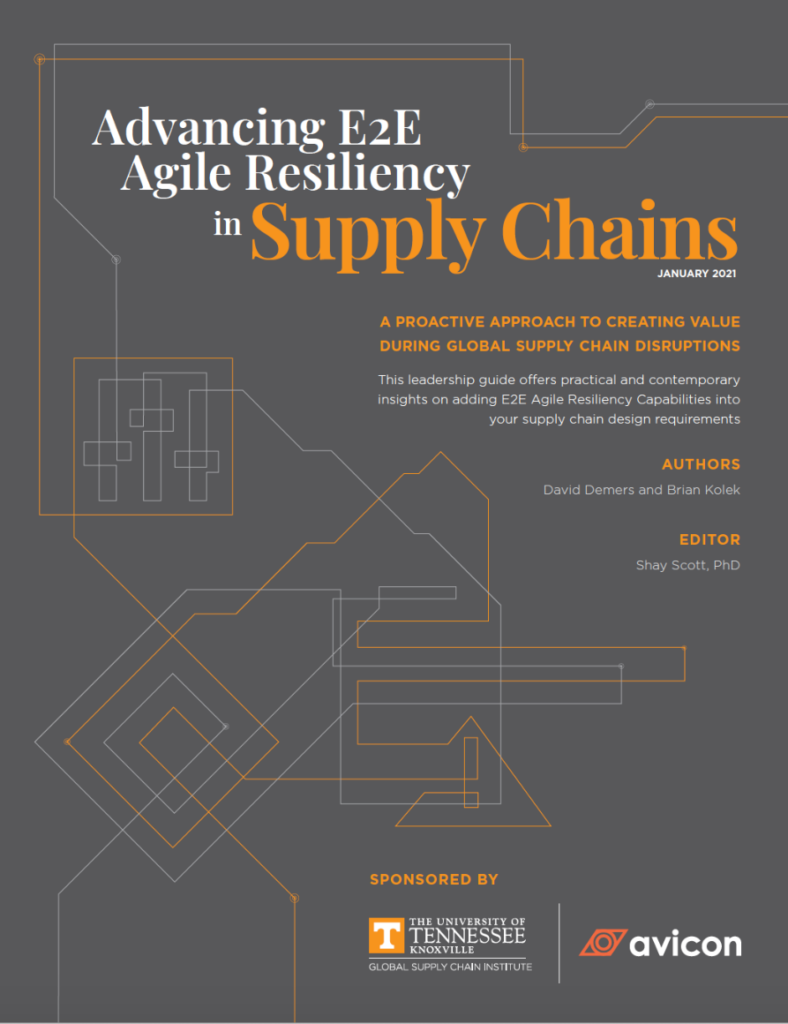
Supply Chain Design: Achieve Resiliency with End to End Supply Chain Agility
Advancing E2E Agile Resiliency in Supply Chains
Supply chain leaders have been through the wringer in recent years. While it’s easy to blame recent supply chain issues on COVID-19, experts warn that risks, uncertainties and supply chain disruptions will continue to challenge economies, marketplaces, and consumers alike. It’s never been more important to 1) evaluate how vulnerable your organization is to supply chain disruptions, and 2) add end to end supply chain considerations and agile resiliency capabilities into your supply chain design. This white paper offers practical “how-to” guidance for advancing and modernizing your approach.
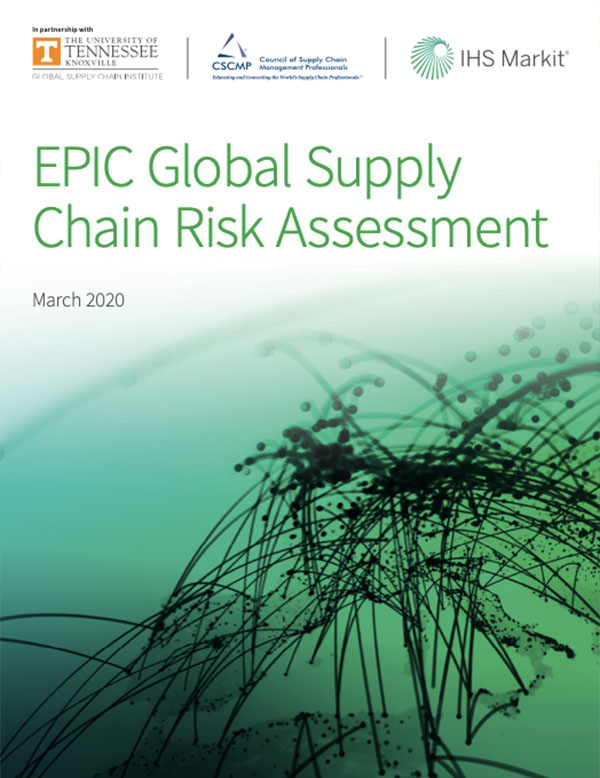
EPIC Supply Chain Framework
A Global Risk Assessment & Readiness Resource
In an increasingly unpredictable world, business leaders can better assess risk by using the EPIC Report and associated EPIC Supply Chain Framework, which measures supply chain readiness from four perspectives: Economy (E), Politics (P), Infrastructure (I), and Competence (C). The authors of this white paper evaluated 64 countries from 10 geographic regions, with a particular focus on how supply chain leaders can manage risk and plan, prepare, and measure supply chain capabilities both globally and for their organizations. This report is must-read information for today’s supply chain decision-makers.
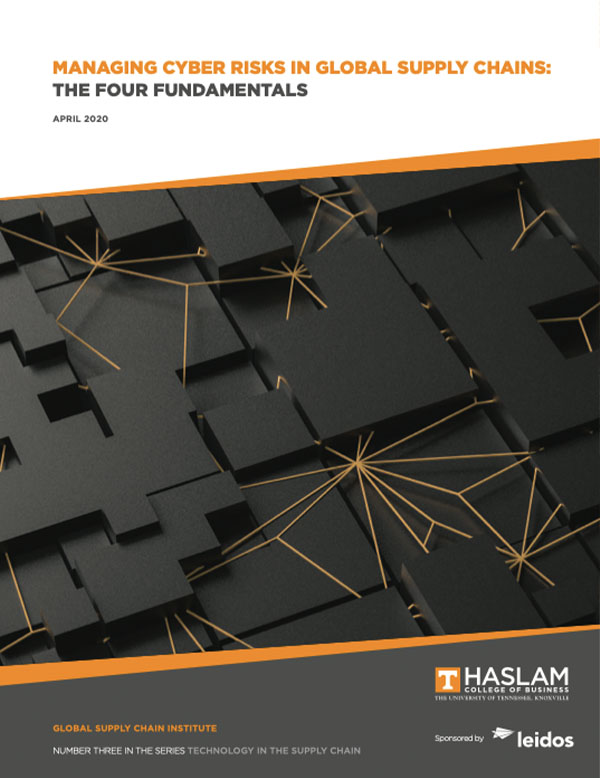
Supply Chain Risk Management
Four Fundamentals to Managing Cyber Risks in Global Supply Chains
Managing cyber risks within global supply chains is one of the top challenges facing today’s supply chain managers. Yet a key insight from interviews conducted with more than 30 cyber experts for this white paper was that most supply chain leaders do not have a clear understanding of how to reduce risk. Industry leaders have clear cybersecurity strategies and build cybersecurity-centric cultures. If your company needs to shift to a solid supply chain risk management strategy, this white paper is for you.
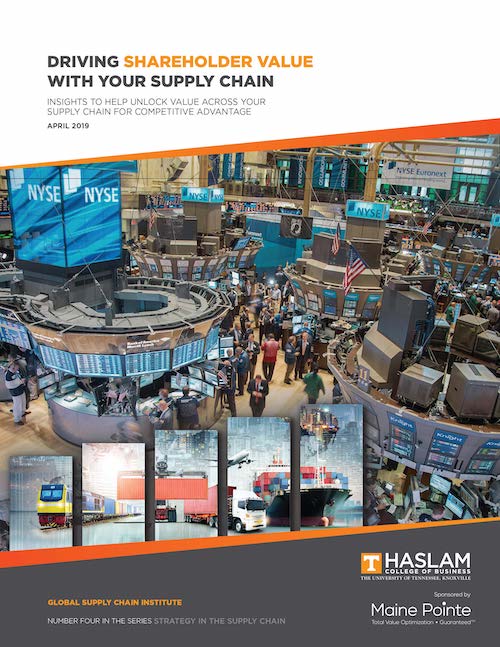
Driving Shareholder Value with Your Supply Chain Strategy
Gain a Competitive Advantage with Supply Chain Best Practices
Chief executives know economic profit drives shareholder value, and savvy business leaders are confident that supply chain excellence is critical for gaining a competitive edge, both operationally and financially. However, some businesspeople do not understand the direct link between supply chain excellence and shareholder value. This white paper explores elements of this link, helping you acquire a basic understanding of supply chain best practices and learn how organizations use supply chain innovation to generate cash to grow their respective businesses.
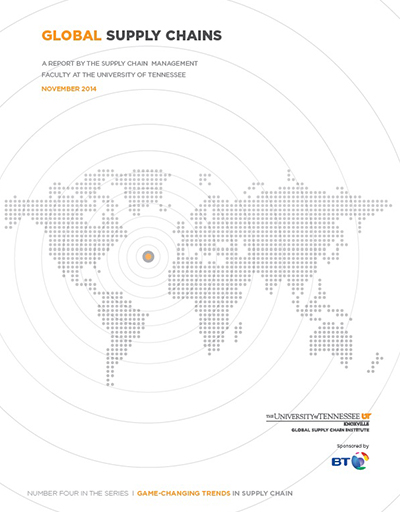
Global Supply Chain Best Practices and Insights
Fundamental Tools for Revolutionizing Your Global Supply Chain Strategy
In today's complex global environment, effective supply chain management is more critical than ever. This white paper provides actionable insights for supply chain leaders, focusing on Total Cost of Ownership (TCO) over short-term cost-cutting and introducing the EPIC framework for global location assessment. Key takeaways include the importance of considering hidden costs, optimal supply chain network design insights, leveraging regional supply-demand hubs, and adopting best practices to enhance supply chain resilience and responsiveness. Whether you're navigating offshoring, nearshoring, or reshoring, this paper is a must-read for staying competitive in a dynamic global market.
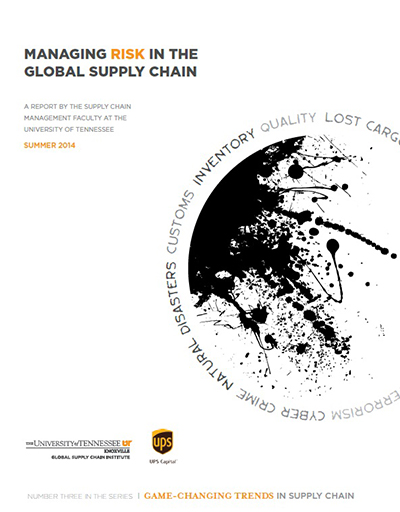
Managing Risk in the Global Supply Chain
How to Manage Supply Chain Challenges and Risk
One constant when it comes to global supply chain management is risk. Despite the many challenges companies face, executives don’t always prioritize or formalize how supply chain challenges will be resolved. Supply chain leaders must therefore prioritize risk management and enact processes to identify and mitigate risk. This is must-know information for the modern supply chain professional.